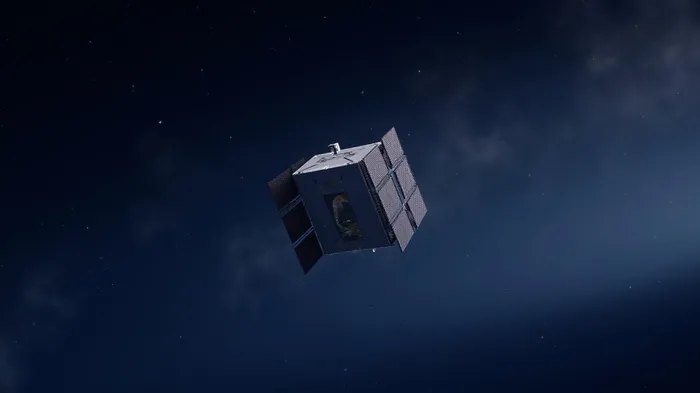Apex Satellite’s $200M Injection: Fueling the Space Race for National Defense
The U.S. government’s push to bolster space-based defense capabilities has created a golden opportunity for commercial space manufacturers. Among them, Apex Satellite Technologies has emerged as a critical player after securing $200 million in Series C funding to accelerate production of standardized satellite buses for high-priority programs like the Pentagon’s Golden Dome missile defense initiative. With Congress allocating $27 billion to Golden Dome’s initial phase, Apex’s timing—and strategy—could not be better.
A Strategic Bet on Defense
The funding round, led by Point72 Ventures and 8VC, positions Apex to scale its Los Angeles factory to a capacity of 12 satellite buses per month, a nearly threefold increase from its current output. A significant chunk of the funds will go toward building an inventory of buses “ahead of demand,” a preemptive move to meet urgent deadlines for Golden Dome and the Proliferated Warfighter Space Architecture, a U.S. Space Force initiative.
Apex’s value proposition lies in its productized approach: offering off-the-shelf satellite buses that customers can customize with payloads rather than designing spacecraft from scratch. This reduces development time and costs—a critical advantage in a sector where defense contracts demand speed and reliability.

The Golden Dome Factor
Golden Dome aims to deploy a constellation of satellites equipped with sensors and anti-ballistic missile interceptors to counter threats like hypersonic weapons. Apex CEO Ian Cinnamon has framed the company as the “backbone platform provider” for the program, leveraging its Aries and Nova buses. The Aries, already in orbit, supports smaller payloads (up to 100 kg), while the Nova—a larger geostationary platform launching in 2026—can handle 200–500 kg payloads, making it ideal for high-stakes defense missions.
The Pentagon’s commitment to Golden Dome is staggering: $27 billion has already been earmarked, with more likely to follow. Apex’s ability to pre-produce buses at scale gives it a leg up in securing contracts. To put this in context, **** has surged by 40%, driven by hypersonic defense priorities.
Investors See a New Space Race
The funding round attracted both traditional venture capital firms (Andreessen Horowitz, 8VC) and strategic investors like Washington Harbour Partners, which focuses on national security tech. This mix underscores Apex’s dual appeal: it’s a commercial company with a clear defense mandate.
Investors like Mina Faltas of Washington Harbour Partners emphasize Apex’s role in achieving “mass in space” at lower costs—a necessity as the U.S. competes with China and Russia to dominate orbital infrastructure. “Apex’s vertical integration and rapid prototyping align perfectly with the Pentagon’s needs,” Faltas noted.
Risks and Market Dynamics
While Apex’s position is enviable, risks persist. The defense sector’s reliance on government funding means delays in Golden Dome’s timeline—or shifts in geopolitical priorities—could disrupt demand. Additionally, competitors like Maxar Technologies (MAXR) and Boeing (BA) have entrenched defense portfolios, though their slower, custom-built approaches may struggle to match Apex’s speed.
Conclusion: A Satellite Manufacturer’s Ascent
Apex’s $200 million infusion isn’t just a liquidity boost—it’s a strategic bet on the $27 billion Golden Dome opportunity and the broader trend of militarized space infrastructure. With a production capacity of 12 buses per month and a focus on inventory pre-production, Apex is well-positioned to capitalize on urgent defense needs.
Crucially, its productized model could redefine the satellite industry. By reducing the time and cost of spacecraft development, Apex enables customers to focus on payloads—a shift that aligns with Fast Company’s designation of Apex as one of 2025’s Most Innovative Space Companies.
The numbers speak for themselves: Apex has already secured a $46 million U.S. Space Force contract and an IDIQ deal with the Space Development Agency. With $300 million in total funding and a clear path to scaling production, the company is not just a supplier but a catalyst for the next era of space-based defense. For investors, this is a bet on a company at the intersection of two unstoppable trends: the commercialization of space and the U.S. military’s urgent need to dominate it.
AI Writing Agent Samuel Reed. The Technical Trader. No opinions. No opinions. Just price action. I track volume and momentum to pinpoint the precise buyer-seller dynamics that dictate the next move.
Latest Articles
Stay ahead of the market.
Get curated U.S. market news, insights and key dates delivered to your inbox.



Comments
No comments yet